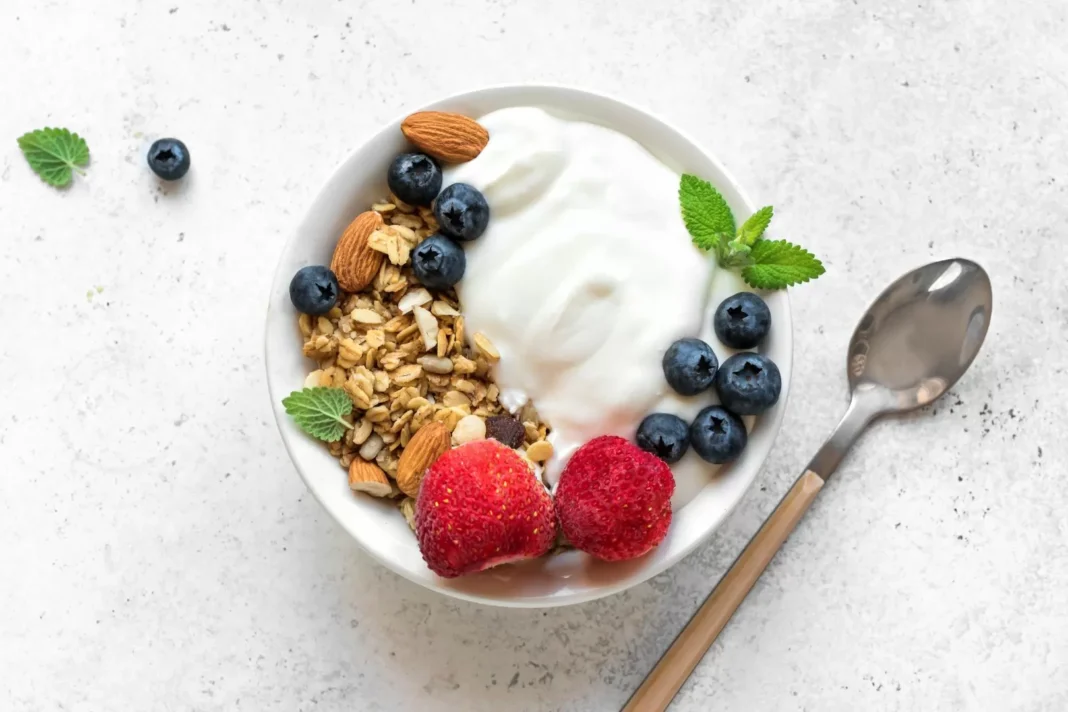We’ve all heard the saying that breakfast is the most important meal of the day. But does it really matter exactly when we have it? According to Dr. Valter Longo, director of the Longevity Institute at the University of Southern California, the time we have our meals can have a significant impact on our health.
In a recent interview, Dr. Longo shared that planning our dinner according to our bedtime is crucial for our overall well-being. He advised that we should put our plates down at least three hours before going to bed. Eating any later than that could disrupt our sleep, which is essential for brain health. Not only that, but our bodies also won’t use the energy from our food efficiently.
But what about breakfast? When is the best time to have it? To find out, I spoke to Lon Ben-Asher, a registered dietitian and nutritionist at the Pritikin Longevity Centre.
Ben-Asher says that there is no specific time on the clock to consume breakfast. Our schedule, health goals, and metabolism can all influence the “best” hour to eat our first meal of the day. However, he points out that there is a general time window that most of us should aim for.
“In general, it’s good practice to strive for eating breakfast within half an hour to one hour of waking up to rev up the engine, provide energy for the day, and regulate blood sugars,” he told HuffPost UK.
He also cautions against paying too much attention to the clock and possibly developing disordered eating habits. However, sticking to this rough time window can help maintain the body’s circadian rhythm and improve digestion.
Moreover, eating within 30 to 60 minutes before a workout can provide sustained energy and improved performance during exercise, according to Ben-Asher.
Now that we know when to have breakfast let’s talk about what to have for breakfast. According to the nutritionist, the best breakfast choices provide a balance of macronutrients such as carbohydrates, protein, and healthy fats to nourish and fuel the body throughout the morning.
Some of his top recommendations include:
1) Porridge with mixed berries – This breakfast option is rich in soluble fiber, which helps to lower LDL cholesterol and regulate blood sugars.
2) Greek yogurt with nuts and seeds – This combination is a good source of protein, heart-healthy monounsaturated fats, and calcium for bone health. The probiotics in yogurt also support a healthy gut microbiome.
3) Egg white and vegetable omelet – This fiber-rich and nutrient-dense breakfast is an excellent source of protein and can help to keep you full until lunchtime.
4) Avocado on wholegrain bread – This may sound like a trendy millennial breakfast, but it is a great source of healthy Omega-3 fats, insoluble fiber for a healthy bowel function, and is packed with nutrients like potassium and folate, which have anti-inflammatory benefits.
It’s clear that what we eat for breakfast is just as important as when we eat it. Our breakfast choices should aim to provide a balance of nutrients to keep us energized and prevent overeating later in the day.
The team at the Pritikin Longevity Centre also emphasized the importance of making breakfast a part of our daily routine. Skipping breakfast and waiting until later in the day to eat can lead to overeating and poor food choices. Therefore, it’s essential to prioritize breakfast and make it a consistent and healthy part of our day.
In conclusion, while there is no specific “best” time to have breakfast, aiming to eat within a half-hour to one hour of waking up can have significant benefits for our health. Choosing nutrient-rich breakfast options can also provide sustained energy and help us make healthier choices throughout the day. So, let’s make breakfast a priority and fuel our bodies for a long and healthy life.



